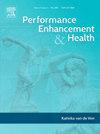除了雄激素,什么都可以:形象和表现提升药物消费者如何通过标示外用药管理身体成分和健康
IF 2.9
Q2 HOSPITALITY, LEISURE, SPORT & TOURISM
引用次数: 0
摘要
本探索性研究调查了在寻求优化其身体成分的个人中使用非雄激素图像和性能增强药物(iped)的各种行为实践。参与者将各种物质堆叠在一起,往往导致多药,这使得实现所需的身体属性和保持健康之间的(不)平衡变得复杂。方法采用半结构化访谈法对14名参与者进行访谈,其中男性为主(n = 13),女性1名,年龄25 ~ 45岁(M = 33.34, SD = 6.27)。访谈探讨了他们使用非雄激素物质(如人类生长激素(HGH)、胰岛素和二甲双胍)的经历,重点是将这些药物纳入日常生活和使用动机的战略整合。采用迭代分类来确定关键主题,包括风险管理、有效性的感知,以及在形成使用实践中的对等网络的作用。结果研究强调了参与者如何使用这些非雄激素物质来控制卡路里摄入和提高胰岛素敏感性。该队列报告称,这有助于更好地控制身体成分,同时减轻与高雄激素使用相关的生理压力。该研究强调了民族药理学在IPED社区中的重要性,展示了人们如何根据经验知识来指导药物方案。虽然与会者指出了潜在的好处,但他们也表达了与获得药物有关的挑战,强调需要通过合法渠道改善药物的可得性。这项研究最终倡导并强调有必要认识到使用IPED的人是健康管理中的知识代理人,为针对IPED使用的复杂性制定更有效的减少伤害战略提供信息。本文章由计算机程序翻译,如有差异,请以英文原文为准。
Anything but androgens: How image and performance enhancing drug consumers manage body composition and health through off-label use of medicines
Introduction
This exploratory study investigates the diverse behavioural practices surrounding the use of non-androgenic image and performance enhancing drugs (IPEDs) among individuals who seek to optimise their body composition. Participants engaged in stacking various substances, often leading to polypharmacy, which complicates the (im)balance between achieving desired physical attributes and maintaining health.
Methods
Semi-structured interviews were conducted with 14 participants, predominantly men (n = 13) and one woman, aged 25–45 years (M = 33.34, SD = 6.27). The interviews explored their experiences with non-androgenic substances such as human growth hormone (HGH), insulin, and metformin, focusing on the strategic integration of these drugs into their routines and their motivations for use. Iterative categorisation was employed to identify key themes, including risk management, perceptions of efficacy, and the role of peer networks in shaping usage practices.
Results
The research highlights how participants employed these non-androgenic substances to manage calorie intake and enhance insulin sensitivity. The cohort reported that this facilitated a more controlled approach to body composition while mitigating the physiological stress associated with high androgen use.
Discussion
The study highlights ethnopharmacology's significance within the IPED community, showing how people navigate drug regimens based on experiential knowledge. While participants noted potential benefits, they also expressed challenges relating to medication access, underscoring the need for improved availability through legitimate channels. This research ultimately advocates for and reinforces the need to recognise people who use IPEDs as knowledgeable agents in health management, informing more effective harm reduction strategies tailored to the complexities of IPED use.
求助全文
通过发布文献求助,成功后即可免费获取论文全文。
去求助
来源期刊

Performance enhancement and health
Social Sciences-Health (social science)
CiteScore
4.70
自引率
0.00%
发文量
27
审稿时长
57 days
 求助内容:
求助内容: 应助结果提醒方式:
应助结果提醒方式:


